Soyeon Yi, Korea’s first and only astronaut, made history in 2008 by outshining 36,206 candidates to join a mission to the International Space Station (ISS). During her eleven-day journey, Dr. Yi contributed to numerous scientific experiments, advancing research in space and biosystems.
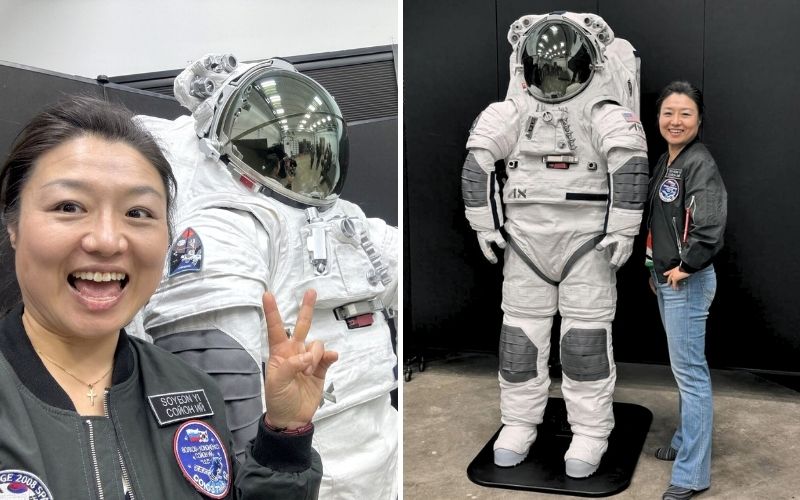
In a recent Zoom interview, Dr. Yi shared insights into the rigorous astronaut selection process, her subsequent training to become an astronaut and the challenges and wonders of life aboard the ISS. She also reflected on the unique experience of adapting one of Korea’s most traditional foods, kimchi, to the conditions of space travel. Passionate about developing the next generation of STEM leaders with her wealth of knowledge and experience, Dr. Yi’s story continues to inspire young innovators to reach for space.
This interview took place during a videocall via Zoom on December 23, 2024. The responses were edited based on the conversation and approved for publication by Dr. Soyeon Yi.
Dr. Yi, could you please briefly introduce yourself?
I was born and raised in Gwangju City, Korea, which is located in the southwest part of the Korean peninsula. After finishing high school, I attended Korea Advanced Institute of Science and Technology (KAIST) in Daejeon, where I completed my undergraduate, master's as well as PhD studies. During this time, I decided to apply for the Korean astronaut program and made it to the top two in December 2006. Our astronaut training program in Russia lasted roughly a year, combined with a week-long training in Korea to learn about the space experiments developed by Korean scientists and various educational experiments by schoolteachers in Korea. On April 8, 2008, after taking off from the Baikonur Space Center in Kazakhstan, I started my historic space journey to the ISS becoming the first Korean astronaut. My name is Soyeon Yi, and I am proud to be Korea's first astronaut.
Was becoming an astronaut a childhood dream for you or you were evidently led to this fascinating endeavor involving space due to your achievements while striving for excellence?
Honestly, I was never curious about space as a child. My parents didn’t have advanced education, and I was the first in my family to attend college, so although my parents were always supportive of my education, science wasn’t really a topic of discussion at home, and I simply didn’t know enough about space to get curious about it. However, when I applied for the astronaut program, it was not because I thought I would be selected, but out of curiosity about the process. At the time, I was a PhD student working on experiments for my thesis, and I was intrigued by the idea of conducting experiments in space. It seemed like a historical opportunity for an engineer, so I decided to apply, mainly out of my curiosity about how the astronaut selection process worked, what kind of people become astronauts, and what they aim to do. I realized that if you're truly curious about something, the best way to understand it is to experience it firsthand, as you can never get the full picture just by reading or searching online. I didn’t expect to be chosen, but I wanted to experience something memorable during my academic years before transitioning into the real world, where life would be much busier. So, becoming an astronaut was never my dream, but it became a remarkable part of my journey in life.
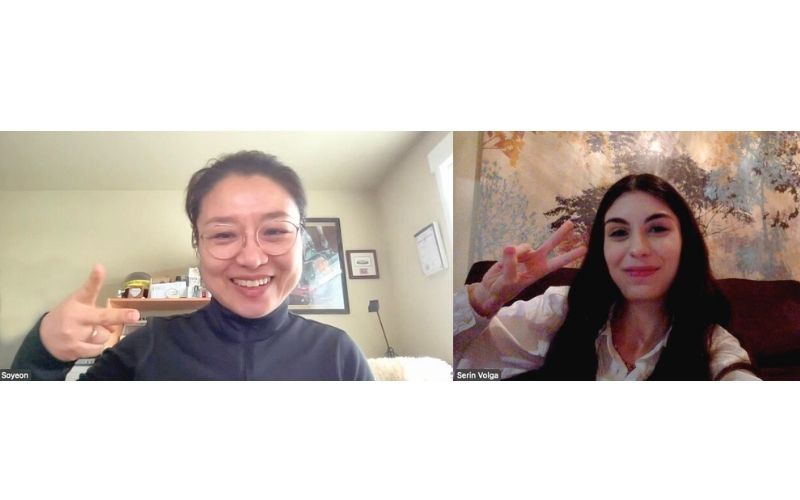
What was the process like and how did you feel when you were selected from among tens of thousands of applicants?
Korea’s astronaut program was a three-year government project. The first year focused on astronaut selection and preparing experiments for the ISS. The second year involved training the final two candidates in Russia, while Korean scientists finalized their experiments. The third year was dedicated to analyzing data and publishing scientific findings. The selection process began in April 2006, narrowing 36,206 applicants to just two finalists by December. Hearing my name as one of the final two was surreal—I was shocked and overwhelmed. The next day, our faces were on the front pages of newspapers, and the reality of the responsibility set in. It was a whirlwind of emotions: excitement, disbelief, and joy, mixed with the weight of the challenges ahead. I couldn’t help but think “how will I handle this?” The experience was both chaotic and exhilarating, with all these feelings swirling in my mind as I prepared to step into this historic role.
You earned this opportunity to represent your country, which must have been both pride-inducing and intimidating, requiring the courage to face that fear. At some point, you realize you're not just Soyeon Yi anymore, but rather a global representative of your nation. Personally, when I think about it, I find myself wondering, "I will definitely do it, but I am just a human – is there a chance of failure?" How did this make you feel, and did you ever contemplate failure?
When I first realized the opportunity ahead of me, I felt a mix of excitement and fear. Representing my country was a great honor, but it also came with enormous pressure. I kept asking myself, "can I handle this? What if I fail?" However, once the preparations began, I became so focused on everything I needed to do that I didn’t have time to think about failure. When you're fully immersed in something, there's no room for doubt or fear—you just keep moving forward.
One of my biggest challenges was balancing my doctoral studies with the cosmonaut training program in Russia. At the time, I was close to finishing the requirements for my PhD, and going to Russia meant I might have to give up on my degree. This was a tough decision, but thankfully, I was supported by my school’s administration as well as my advisor who told me, "the cosmonaut training isn’t 24/7. You can train during the day and work on your PhD in the evenings." It sounded overwhelming, but I didn’t want to abandon my degree, so I decided to give it a try.
The training in Russia was intense. My days started early, around 7 or 8 a.m., with physical exercises, technical classes, or simulations. Training usually ended around 6 or 7 p.m., but for me, the day wasn’t over. While others rested, I spent my evenings working on my PhD—analyzing data, writing, and completing my research. I also had to do homework for the cosmonaut training program, which often took several hours. I worked around 16 to 18 hours a day, leaving very little time for sleep. Some nights, I only got 3 or 4 hours of rest. It was exhausting, but I was determined to succeed in both areas. Looking back, I realize that being so busy left me no time to think about failure. If you have the time to think about failure, it means you're not busy enough, and you're not truly invested.
What were the reactions of your family members and others around you when you shared with them that you would be going to space?
When I decided to apply for the astronaut program, I had a mix of reactions from those closest to me. My lab mates, many of whom knew me better than I knew myself, were incredibly supportive. They encouraged me, saying, “You can do this. We believe in you.” They were confident that I could make it, at least to the top 300, because they knew how hard I worked and how physically fit I was. At the time, I already held a third-degree black belt in Taekwondo, ran every night, and swam every morning. They reminded me that not many people have that combination of athleticism and intellectual capacity, which is essential for an astronaut. However, my advisor wasn’t as enthusiastic. When he found out I had applied, he expressed concern. He was worried that I might be spreading myself too thin, as in Korean culture, there’s a tendency for older generations to want the younger ones to focus on one thing.
My mom, of course, was a little shocked when I first told her, but she knew me well enough to know that I was curious about everything, so she wasn’t that surprised that I had applied. Later, when I made it into the final 10 candidates, I found out that my brother had also applied. He had never told me, but it turned out we were both thinking the same thing at the same time. He had to withdraw because his lab schedule didn’t allow him the time to pursue the competition, but it was still a surprising revelation for both of us.
When I reached the final two, my mom became really concerned. She was worried about the danger and the uncertainty of it all. She told me, “I know you want to try new things, but this is risky. If you’re hesitating, I can step in and tell them you want to give up.” I told her, "No, I really want to go. I want to try." I could see in her face that she didn’t want me to go, but she didn’t stop me. She knew how much it meant to me.
My sister, on the other hand, didn’t really care much. She and I are very different, our personalities, our fields of interest, we have the typical sibling dynamic. Even when I told her I made it to the final two, she just said, "Oh, astronauts? Fine, whatever..." But in a way, her indifference was encouraging and helpful for me. She treated me the same, like her sister, no matter how much attention I was getting. Not making a big deal of it was her way of showing her love.
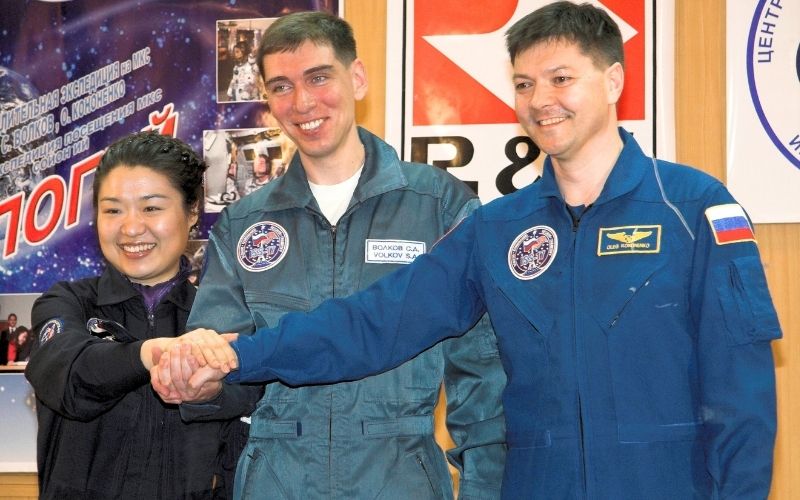
What kind of preparations did you undertake before going to space?
During my training, I was surprised that physical training wasn’t as intense as I expected. They told us we were already healthy enough, so we only needed to maintain our fitness, with workouts just twice a week for less than two hours each session. Back in Korea, I was used to going to the gym, running, and swimming every day, but in Russia, even during astronaut training, it was much less. The toughest part was learning Russian. I had never studied the language before, so when I arrived at the training center, I started from scratch, even learning the alphabet. Within five to six months, I had to become fluent enough to communicate in space. Besides that, the training focused on systems, safety, and space missions, along with 16 scientific experiments designed by Korean scientists.
Let's go back to the day right before your space journey. It's been 17 years, quite a long time, but perhaps you still remember the feelings of that last day and night before your journey started. The thought that you would be sleeping outside of the Earth a day later must have been on your mind. What were you feeling and how did this thought affect you while lying in your bed on Earth?
I still can’t fully understand why, but I was calmer than ever during that time. I think it was because the situation was so important and intense that I couldn’t afford to be nervous. When something is so big and crucial, it can numb your nerves. Instead of feeling nervous, I just followed the protocol and the orders. I think staying calm is key for the mission and everything else. What’s interesting about astronauts is that when you first meet them, they seem like regular people, and you can’t tell whether they’re astronauts or not. However, when faced with a dangerous or unexpected situation, most astronauts become incredibly calm. That’s what makes them good candidates. Many smart and talented people struggle in these situations, getting nervous or panicking, but astronauts handle them with calmness, following orders. They might seem emotionless, but they are just highly focused and very human. It's a fascinating trait of astronauts.
How about the moment of your space launch? Do you have any memories you would like to share about that moment?
My launch wasn’t exactly normal. During the preparation, my commander's spacesuit burst, which created an emergency situation even before we launched. We had to handle that issue first, testing his spacesuit several times in the capsule. There were large committee meetings to decide if it was safe for him to proceed with the spaceflight, so there was no time to focus on how dangerous or exciting the situation was. We were just so busy dealing with the unexpected problem, hoping everything would work out. I didn’t have any romantic or exciting moments; we were just focused on making sure we could make it happen.
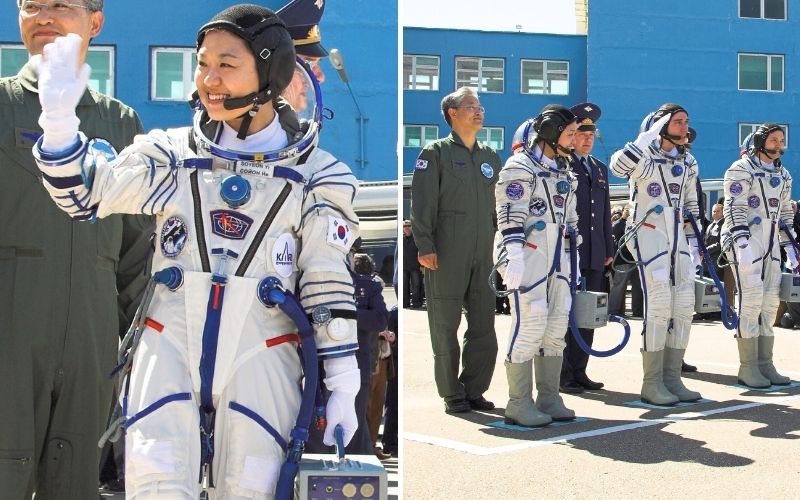
When you were finally in space, what thoughts crossed your mind, and when you remember those moments now, what thoughts come to your mind?
The most interesting part was when we reached orbit, about 10 to 15 minutes after launch. In those 10-12 minutes, you start to feel zero gravity. Right before launch, astronauts sit almost like they are lying down, but with their knees bent, and a very tight seatbelt securing us. To make sure it was tight enough, one of the staff members would stand on my belly and pull the seatbelt as hard as they could, ensuring we were tightly strapped into the space capsule. The reason for this tightness is safety; if the seatbelt is loose, you could be thrown around and hit yourself during launch.
Once we reached zero gravity, even though the seatbelt was tight, I could feel myself floating slightly above the seat. It was a surreal moment—knowing we were in zero gravity. In the middle of the capsule, my commander had brought a small doll given to him by his son, who was about 5 or 6 years old at the time. The doll hung by a string inside the capsule. When we were in gravity, the string was straight, but once in zero gravity, it became curvy, floating in the air. That was a clear sign we had entered zero gravity, and I’ll never forget that particular moment.
Once in space, how did you feel when you started seeing our home planet, Earth, that perhaps started looking small compared to the vast cosmos?
When you travel to the ISS, you don’t actually go that far—only about 400 kilometers away from Earth, which is still relatively close. Therefore, from the ISS, you can't see the whole Earth. It’s not small at all. You can’t even see the entire Korean peninsula, just about a third of it. However, we fly incredibly fast, orbiting the Earth 16 times a day, and inside the capsule, it feels like we’re moving at an extraordinary speed. Despite Earth’s vastness, being up there makes you realize just how small and vulnerable we are as humans. It’s a strange feeling—looking down at the place you came from just hours ago, and it makes you feel like a third-person observer of the planet. It’s a truly unique and humbling experience.
How long did you stay in space and what kind of work did you conduct there? Could you tell us about some challenges you faced in space?
I stayed in space for a total of 11 days, with two days for traveling in the space capsule and then nine days at the International Space Station. My major mission was conducting some experiments in space, so more than 70 percent of my time involved taking care of that. About 30 percent was for my other tasks. My favorite time was spent for the cultural activities, TV and radio interviews, and then talking with Korean children on Earth as well as taking care of the space classroom. Soon after my arrival at the ISS, I was told by the more experienced astronauts there that I was possibly the busiest astronaut ever to stay at the ISS since most of the astronauts plan for an eight-hour workday, with only five, six hours a day to take care of their mission, one or two hours for the meals and breaks, and then several hours for resting followed by at least eight hours of sleeping. The astronauts who have just arrived at the ISS have even a more relaxing schedule because they might be feeling unwell due to serious motion sickness. My workday, on the other hand, lasted at least 12 hours. Several other unexpected challenges and delays made my schedule even more hectic than planned, but everyone at the ISS was very helpful and supportive to me, and coupled with my non-stop efforts, I was able to successfully complete all the tasks on my busy work schedule.
During my research for our interview, I read that you kept a space journal. Is there an entry or a note in your journal that is dear to your heart and still deeply reminds you of those days?
Curiously enough, my space journal isn't emotional at all; it is just a list of keywords. On the ground, I write long, descriptive entries every night about my thoughts and feelings, but in space, I didn't have the time or the comfort to write that way. The zero-gravity environment made it difficult to write—there’s no desk or chair, and my body kept moving, so I only wrote a few keywords. Sometimes, when I look back at them, I can't even remember why I wrote certain words. I thought I would remember, but some entries are a complete mystery to me now.
Could you tell me about the space kimchi which made it to the ISS with you? I know many Koreans take kimchi with them everywhere, but I would have never imagined that kimchi would end up even in space. What did space kimchi taste like?
Space kimchi isn't like real kimchi because it's freeze-dried or canned. To prevent any microbes or bacteria from reaching space, everything has to be sterilized, which means all the probiotics are killed by radiation. Canned kimchi feels like it has been around for ages, very loose and not fresh. Freeze-dried kimchi is more like a block you'd find in instant ramen soup. The taste is somewhat similar, but it’s definitely not the fresh kimchi I love—it’s far from it.
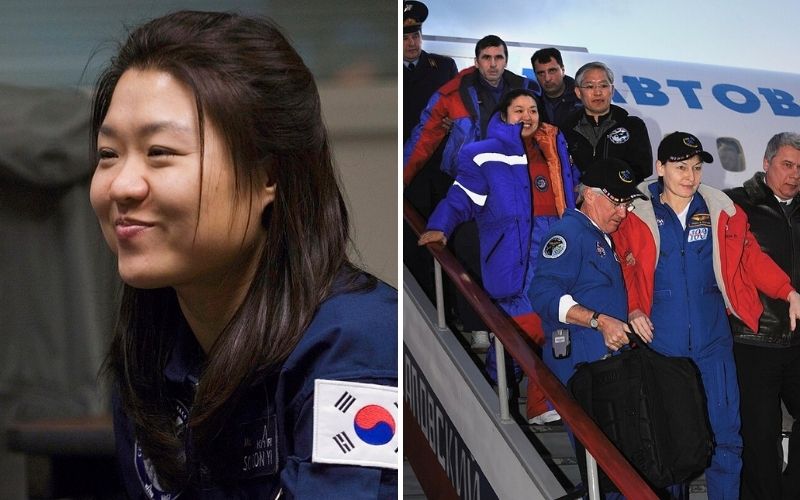
What was the place you most wanted to visit when you returned from space?
After returning from space, during the press conference, journalists asked what I wanted to do most. My immediate response was, "I really want to go to the bathroom and take a shower." For 11 days in space, I couldn't shower with running water. I could only wipe with a wet towel, but showering is not only about cleaning your body. It's the feeling of warm water running over your head and shoulders that brings relaxation and comfort. I really missed that during my space flight.
Could you tell us about your book titled “Meet Me at the Universe”? Are you considering publishing it in different languages to reach readers worldwide?
All these years, although I have participated in numerous interviews and lectures about my space flight experience, many people may still feel that they only have fractional knowledge about it, and they may still be interested in hearing the whole story from me. Due to some professional and personal reasons, I decided to give myself some time before starting to write this book. It has ended up taking me much longer than I originally planned, but I really wanted this book to describe my experience more objectively and to serve as an inspiring guide for the next generations. I do not have any commercially driven objectives around it. For me, it’s more about documenting and archiving my memories within a cohesive and meaningful medium before those memories grow dimmer or even get lost with the passage of time. Publishing it in other languages and reaching a wider, more global readership would be nice, but it would also require securing the support of an internationally operating publisher who would have to be interested in taking that business decision.
Where does Korea stand globally in terms of current space exploration efforts? Are you still involved in any space related activities connected to Korea?
I think Korean people are always driven by hard work and excellence, and they always try to exceed expectations. This applies to all the scientists and engineers participating in Korea’s efforts in this area as well. They are all doing a great job, and I am so proud of each and every one of them. At the moment, I am not officially involved in any space-related activity for Korea, but I am still in touch with many individuals working in the space sector, and whenever I can, I extend my indirect support by helping them connect with the experts or companies in other countries. Should there be any opportunities in the future for my more direct involvement, certainly I would be very happy to consider them.
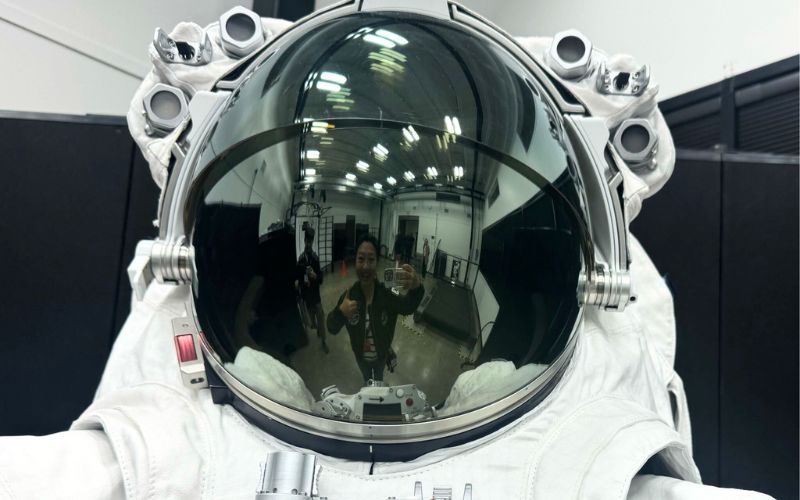
Would you like to go to space again if given the opportunity?
Yes, of course. I really want to go again. If you have been somewhere once, you always want to go back, right? And if you’ve never been there, you never really know how good it is or not. Being in space, of course, isn’t comfortable, but it’s very interesting and completely different. When I had my first space flight as Korea's first astronaut, the schedule was incredibly tight. Since it was my first time, sometimes I didn’t know how much I could do or how to try things differently because I just followed the manual and protocol, but now, with experience, I realize there were moments when I could have tried things in a different and perhaps better way. There are things I feel I missed, so I really would love to go back again.
Lastly, what would you like to say to young individuals aspiring to become astronauts or striving for their dreams?
The only advice I can give is to do your best. There are no shortcuts, no hidden secrets, no special recipes. Just follow your feelings and trust your gut because your instincts are usually right. Everyone's journey is different, even for astronauts. Every year, every mission, and every country present a different path, so you can't predict or rely on a secret formula. The only way forward is to work hard, stay diligent, and do your best…
How about this article?
- Like4
- Support1
- Amazing12
- Sad0
- Curious0
- Insightful0


